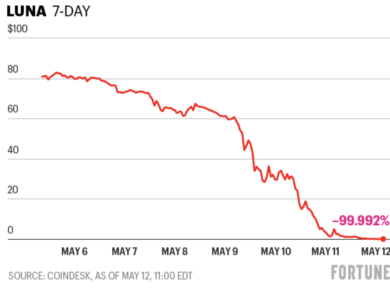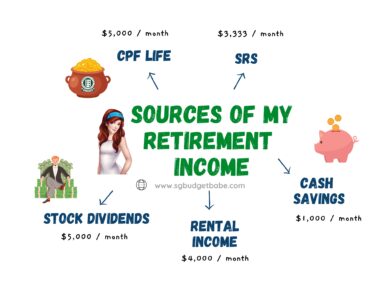What if you could get paid for doing nothing?
Sounds too good to be true? Except that is completely realistic – through dividend investing!
It's been too long since I did a proper #dayrefinance post, so here's one today!
Income investing : buying good dividend stocks (solid companies) and getting paid for simply holding the shares
One of my friends quit his job and retired in his 30s because he was making so much money from his dividends that it was enough to cover his living expenses, including his condo mortgage payments every month! What's more, it was also substantial enough for him to still able to support his wife and child even though he was no longer working.
Some of you might also be familiar with AK, who earned close to $500,000 in 2017 through dividend payouts alone!
💰 $97,000 from REITs
💰 $391,700 from non-REITs
That's $40,750 per MONTH 😱😱 he could have simply lounged around on his sofa watching Korean dramas all day, everyday, and STILL get $40k every month from dividends.
If you're able to identify good dividend stocks to invest in, this could be us. And in fact, a large part of my retirement strategy involves living off my dividend income, just like what many of my savvier and older investment friends are currently doing.
How does dividend investing work?
Imagine Company A, which has a yield of 6%, meaning that $10k invested will become:
💰 $10,600 in year 1
💰 $11,236 in year 2
💰 $11,910 in year 3
💰 $13,382 in year 5
💰 $17,908 in year 10
You would have gained over $7k from your investment simply by leaving it untouched! Compare this to a bank account like OCBC, where you have to do salary crediting + ensure you spend at least $500 every month on a OCBC credit card + pay 3 bills EVERY SINGLE MONTH just to get about 2.6% interest.
Big difference, isn't it? And there's not just one, but PLENTY of such "Company A"s in the stock market. Find them, and you'll go HUAT AH!
In fact, I counted 24 such "Company A"s today on SGX alone 😎
But…what's the catch?!?
If you invest in the WRONG dividend stock, you could end up in a worse position than if you had simply left your money in a bank, even if it was in POSB earning you 0.05% interest.
One such example is Starhub, which some of you asked me about during the Dayre financial crash course in January 2017. I said then that I wouldn't touch it even though its yield was tempting, because I predicted that Starhub was going to cut their dividends (@catchingautumn can be my witness!)
A few weeks after, Starhub's management officially announced they were going to cut their dividends.
Now, I don't have a crystal ball, and neither do I have insider information! But based on my analysis, I knew this was bound to happen, and my investing skills saved me from putting any money into Starhub.
I also detailed how I knew Starhub would cut their dividends here:
@sgbudgetbabe:260217
In fact, if those readers had invested $10000 into Starhub then on Jan 2017, they would have LOST 7% by today (although I'm pretty sure after listening to me during that workshop, everyone would have avoided it like the plague)!
How to spot the good stocks from the bad ones?
This is where it gets tricky. After all, no company is going to tell you their stock is bad! Neither will your broker, nor most financial bloggers (we have to be careful with what we say or we could get sued okay, no joke).
And there's no fixed magic number either. It's not like you could take >X% = a fraud. Depending on the situation, 14% yield stock could be a very good investment (or not) while a 5% one could turn out to be a terrible idea.
So the answer lies in GETTING EDUCATED and doing your homework.
It is your own money, so you'd better be responsible for it! You need to learn how to invest, and the truth is, it isn't as difficult as you think it is!
My elder cousin previously worked in SGX and when I was younger, hearing him and my dad talk about "investments" sounded all so cheem to me.
But after I started learning about how to invest, I realised it is so much easier than I'd thought, and all based on logic too.
One way lies in evaluating the company's financial health – look at their annual report and financial statements. Do the math. Don't worry, it's simple primary-school math of only + – / *.
But eh help there's so many numbers on their financial statements!!! What do I look at?!?
Ah, that's where you need to learn. Read books or go for classes.
And the best way to learn it within the shortest time possible?
Learn from a teacher
I've attended a lot of investment courses (about 80% of all the major / popular ones in Singapore) and frankly, my personal view is that most of them charge too much for teaching you too little.
I'll use my own mom as an example. Last year, she attended one of the most popular investment courses here (not revealing the name cos I don't wanna get sued) which charged her $4000+ for a weekend workshop.
$4000+ to turn up, sit in class, get a book of physical PPT slides as notes, and that's it.
She said they were "highly qualified" and "raved about" so it was worth the money. Well, I quizzed her after that and here's what she answered me.
1. Which stock is the cheaper investment? Old Chang Kee or DBS?
She answered: Of course OCK la! 80 cents only! DBS $25 leh, you siao ah.
That was when I knew she didn't learn a single thing from the course 😑 *face palm*
(the correct answer is that DBS is the cheaper stock.)
(disclaimer: I'm vested in DBS. This is not a recommendation to buy DBS stock lol)
Perhaps someday when I'm able to quit my full time job, I can then go into investment education, but in the meantime, if you want to learn the right way to dividend investing, there's only ONE course provider I will personally recommend. I paid for their course in 2015 (and they didn't know my identity when I went) and loved it so much that I personally reached out to them after to see if I could get reader promos for the blog.
(this is NOT a sponsored post)
In contrast to the course my mom attended above, what if I told you there's one that:
✅ teaches you exactly what metrics to look for in dividend stocks and where to find them
✅ teaches you the formula for evaluating REITs (real estate investment trusts)
✅ 24/7 unlimited support via a private member's Q&A forum to ask all the questions you want, anytime
✅ 1 live workshop held in Singapore for those who wants to learn face to face
✅ Lifetime access to all future course content upgrades
I'll use myself as an example. I paid for the course in 2015 and basically have been going back for refresher class every year + get access to all the new case studies and formulas that they've added in the last two years. All for $0, because my original payment then was already for lifetime access 😎
How much would you pay for such a course?
(remember my mom's $4000 course which only gave very simplistic printed notes + 1 weekend workshop k wtf)
I've made wayyyyyyyyy more than my initial investment into this course back in 2015 ever since, and I'm confident that you'll benefit just like I did. And if you're not satisfied, well there's always that refund option within 30 days if you'd rather forgo everything 😎 but why would you?
I'll be heading back for one of their workshops too (haven't decided which date) this year, so let me know if you're going so perhaps we can meet! 🙂
Less than $1 a day
for knowledge that you can use in a lifetime.
The best part? It only costs less than USD 300 so if you're keen on joining, you can read my review at www.sgbudgetbabe.com or sign up at
http://sgbudgetbabe.reviews/DM2018
(repeat: I was NOT paid to write this post #notsponsored #ipaidwithmyownmoney proof of my purchase is on the blog)
P.S. you can get the $100 off (thus it'll only be $297) if you go direct or through a partner's link like mine! But if you'll like, pls do sign up via my link as it is actually a tracking link for the organisers to track how many readers came through Budget Babe, which I can then use to negotiate for even more readers discounts for their future courses! 🙏
P.P.S. Another savings tip: if you're married or attached, you can share the access with your spouse (although the workshop will only be for one person) so you technically divide the cost further by 2! 😊






